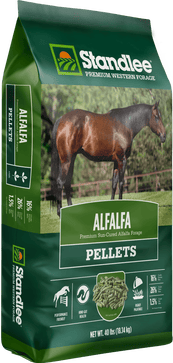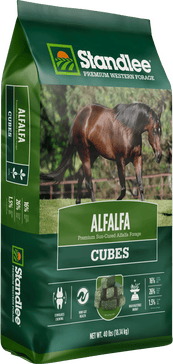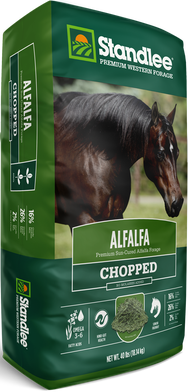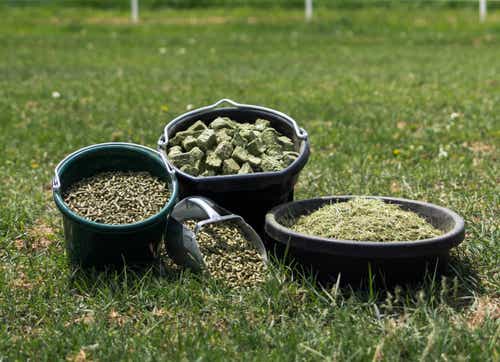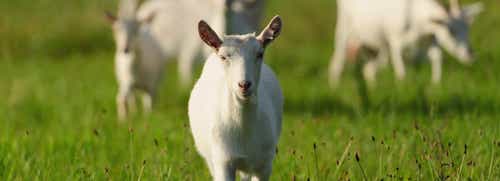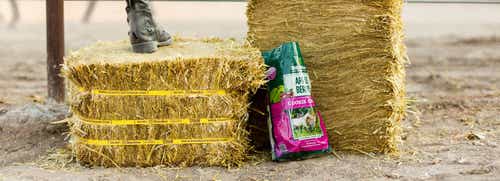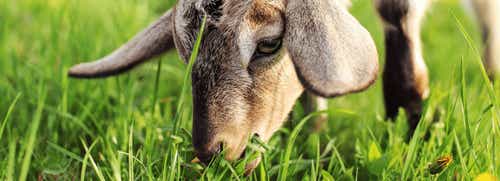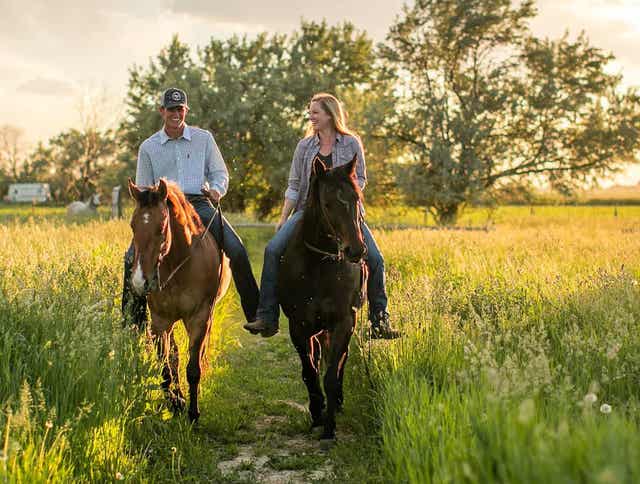
What are Gastric Ulcers and What Can I Feed My Horse to Help Manage Them?
The horse has evolved as a grazing animal; forage plays an essential role in equine health. Horses are non-ruminant herbivores, also known as a “hindgut fermenters.” Their digestive tract is made up of a simple stomach, small intestine and large intestine. The natural feeding habit of the horse is to eat small amounts of roughages, often. Domestication has changed this. Modern management practices incorporate stabling, increased grain-based concentrate (higher in energy and lower in fiber than forages and hay) consumption, meal feeding and limited access to pasture. This has led to numerous problems by undermining the horses’ digestive capabilities. One of the most common disorders in horses today is gastric ulcers.
Equine gastric ulcers are caused because gastric acid (hydrochloric acid secreted by parts of the stomach lining), and, to a lesser degree, the digestive enzyme pepsin, irritate the lining of the stomach, causing ulceration. Gastric ulcers are common in horses; their prevalence has been estimated to be as high as 90% depending on the athletic activity of the horse. Foals are also at risk with an estimated 25-50% developing lesions.
The clinical signs of ulcers are not noticeable in most horses. Of those horses clinically affected, the signs may include poor athletic performance, change in attitude, dull coat, altered eating behavior, weight loss, diarrhea and colic. In foals, teeth grinding (a sign of pain) and excessive salivation are commonly experienced.
Ulcers are caused by a variety of factors including diet and feeding management. Theses causes can include feeding high levels of grain-based concentrates, not feeding enough forage and not spacing out forage feeding to mimic grazing behavior, as well as chronic use of medications such as non-steroidal anti-inflammatories.
The stress of exercise has been shown to induce ulcers within a five to seven day period. Transporting horses and changing management such as mixing groups of horses, can also lead to ulcers. Strenuous exercise moves blood to the muscles and away from the digestive system which can contribute to the problem as well.
Considering the rate of gastric ulcers in horses today, researchers have investigated several nutritional aspects of the disorder. A study looking at feed type on gastric ulcer formation showed an increased risk of gastric ulcers in young, growing horses consuming high grain diets as compared to a hay diet. After four weeks on the high grain diet, the ulcer scores for the horses had increased by about 30%, and after eight weeks, the scores had increased by about three-fold. Thus, a diet high in fiber appears to promote better digestive health as reflected by the gastric ulcer scores, whereas high grain diets caused greater gastric irritation. Other research has focused on forage type in the mitigation of ulcers and found alfalfa to be more beneficial than grass hay in decreasing ulcer score and severity.
Dietary supplements aimed at decreasing the risk of ulcers have focused on decreasing acid production in the stomach. Calcium is known for its buffering capacity and the amino acid threonine is known for mucous production (protective layer covering the stomach tissue).
Standlee offers several Alfalfa forage choices that can aid in decreasing the severity of ulcers by increasing the calcium content of the diet. Alfalfa also contains increased concentrations of threonine compared to other forages which can further increase the protective function of the gut.
If you have questions, please contact the nutritionists at Standlee Premium Western Forage, or consult with your veterinarian.
Scientific References:
Flores, R.S., C.R. Byron, K.H. Kline. 2009. Effects of Feed Type on Growth and Gastric Ulcer Formation in Weanling Horses. J. Eq. Vet. Sci. 29(5):484-485.
Nadeau, J.A., F.M. Andrews, and A.G. Matthew. 2000. Evaluation of diet as a cause of gastric ulcers in horses. Am. J. Vet. Res. 61:784-790.
Lybbert, T., P. Gibbs, N. Cohen, B. Scott, and D. Sigler. 2007. Feeding alfalfa hay to exercising horses reduces the severity of gastric squamous mucosal ulceration. In: Proc. Amer. Assoc. Eq. Practnr. 53:525-526.

